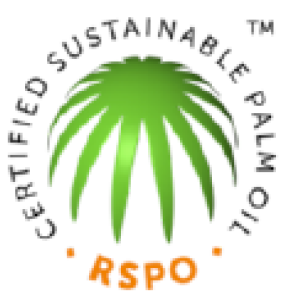
The Roundtable on Sustainable Palm Oil has recently finalized a review of the its Principles and Criteria for Sustainable Palm Oil Production (P&Cs), and agreed a new set of standards. RSPO founder member WWF is signing up to the standards but cautions that they are not good enough. It says that using palm oil certified as sustainable under the Roundtable on Sustainable Palm Oil (RSPO) is no longer enough to ensure companies are acting responsibly.
In a position statement and in its FAQ documents WWF released, WWF says this:
“WWF would have preferred clear black and white performance standards for the criterion dealing with GHGs and pesticides that describe how sustainable palm oil is produced. Just as the existing criteria make it clear that companies must not clear or damage high conservation value areas, we would have liked clear standards banning clearance or cultivation of peat soils and high‐carbon habitats. If the P&Cs contained a comprehensive set of clear performance standards it would be abundantly clear that certification against the RSPO P&Cs would ensure that the palm oil in question was produced sustainably. Unfortunately, not all of the members of the Taskforce were willing to accept such changes at this time. That means we are now in the position of having to consider the RSPO P&Cs only as a framework within which responsible growers can tackle key sustainability impacts such as GHG emissions rather than a ‘proof’ of sustainability in itself.”
Responsible growers are those that not only certify all of their palm oil production against the RSPO principles & criteria but who also take the following further actions:
- immediate public reporting of GHG emissions from existing and new plantations using Palm GHG;
- for new oil palm developments: full implementation of the RSPO New Plantings Procedure and zero‐net land use emissions over a single rotation, which will exclude cultivation on peat‐soils and clearance of high carbon stock areas;
- for existing plantations and mills: significant annual GHG emissions reduction targets essential measures should include the treatment of mill effluent to eliminate methane emissions and the restoration of any plantations on peat at the end of the current rotation;
- an end to the use of pesticides that are categorized as World Health Organization Class 1A or 1B, or that are listed by the Stockholm or Rotterdam Conventions, and paraquat;
- only buying Fresh Fruit Bunches (FFB) from known sources, in particular no FFB riginating from land illegally occupied or that is within any sort of designated or protected areas such as national parks.
“The rest of the palm oil value chain – from investors to retailers – must also make parallel commitments to only do business with growers that take these extra actions. Traders and processors because of their unique position in the supply chain now have a greater responsibility to act transparently and to ensure that their customers know where their palm oil is coming from.”
You can download WWF’s position statement and FAQs here.
The new standards are here.
News coverage can be found here.







Post a new comment »